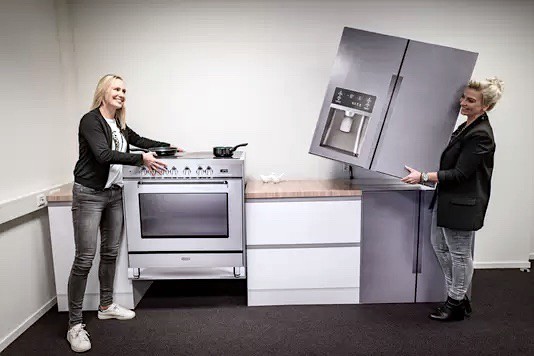Written by Caroline Jurgens
Artificial Intelligence (AI) has burst into numerous aspects of our daily lives, and the real estate market is no exception. From property searches to price prediction and enhancing the customer experience, AI is transforming the way homes are bought and sold. Moreover, the future of Home Staging, a crucial technique for presenting properties attractively, is also being influenced by technological innovations. In this article, we will explore how AI is affecting home sales and how Home Staging is evolving into the future.
- Property Search and Filtering
One of the first steps in buying a home is searching for properties that match the buyer's needs and preferences. AI has revolutionized this process by offering advanced search systems that use machine learning algorithms to understand user preferences and recommend relevant properties. These systems can analyze a wide range of variables, such as location, size, price, and specific property features, to provide accurate and personalized results.
- Valuation and Price Prediction
Determining the value of a property is fundamental for both buyers and sellers. AI has significantly improved this process by enabling automated property evaluations using historical sales data, property characteristics, and market conditions. AI algorithms can analyze large amounts of data to identify patterns and trends, allowing for precise and objective property valuations. Additionally, AI can predict future prices using machine learning models, providing sellers with valuable information to set competitive prices and giving buyers an idea of a property's future valuation.
- Customer Experience and Personalization
AI is transforming the customer experience in the real estate market by offering personalized services tailored to each client's individual needs. AI-powered chatbots can provide instant answers to customer queries, offer personalized property recommendations, and assist in scheduling visits. Moreover, AI systems can analyze customer behavior and preferences to offer relevant content and recommendations, enhancing customer satisfaction and increasing the chances of closing sales.
- Future of Home Staging: Importance of Presentation
The future of Home Staging looks exciting with the integration of technologies such as virtual reality (VR) and augmented reality (AR). VR works especially well for providing a first impression of the house, particularly in situations where the property is sold off-plan before construction. It is also useful when buyers live far away and want to get a clear idea of the property without long journeys. Additionally, it is effective in cases where the house needs a complete renovation, allowing buyers to visualize the property's potential after the renovation. However, the effect of making an on-site visit and truly experiencing the house with all five senses is something that, for now, cannot be replaced by AI.
Home Staging techniques play a crucial role in presenting a property attractively and pleasingly to potential buyers. Properly preparing the house is essential to create a positive experience during the visit. This involves decluttering the space, eliminating mess, making minor repairs, and, in many cases, decorating with carefully selected cardboard kitchens, cardboard furniture and accessories to highlight the property's best features.
Additionally, high-quality photos of a professionally staged home are essential for capturing buyers' attention online. Clear, well-lit images can capture the essence and potential of the property, sparking buyers' interest and motivating them to schedule an in-person visit..
Challenges and Ethical Considerations
While AI offers numerous benefits in the home selling process, it also poses challenges and ethical considerations. For example, there is concern that AI algorithms may perpetuate existing biases in the real estate market, such as racial or socioeconomic discrimination. Additionally, over-reliance on AI may reduce human involvement in the home selling process, raising questions about job loss in the sector.
In summary, Artificial Intelligence is significantly impacting home sales by improving efficiency, accuracy, and personalization throughout the process. The future of Home Staging looks promising with the integration of emerging technologies, but it is important to recognize that the sensory experience of visiting a property remains irreplaceable for now. It is crucial to address ethical challenges and ensure that AI and emerging technologies are used responsibly and equitably to benefit all stakeholders in the real estate market.
- Photos and Home Staging project by Taïs García from Dquorum. Sofa and bed are made of cardboard (Cubiqz).










